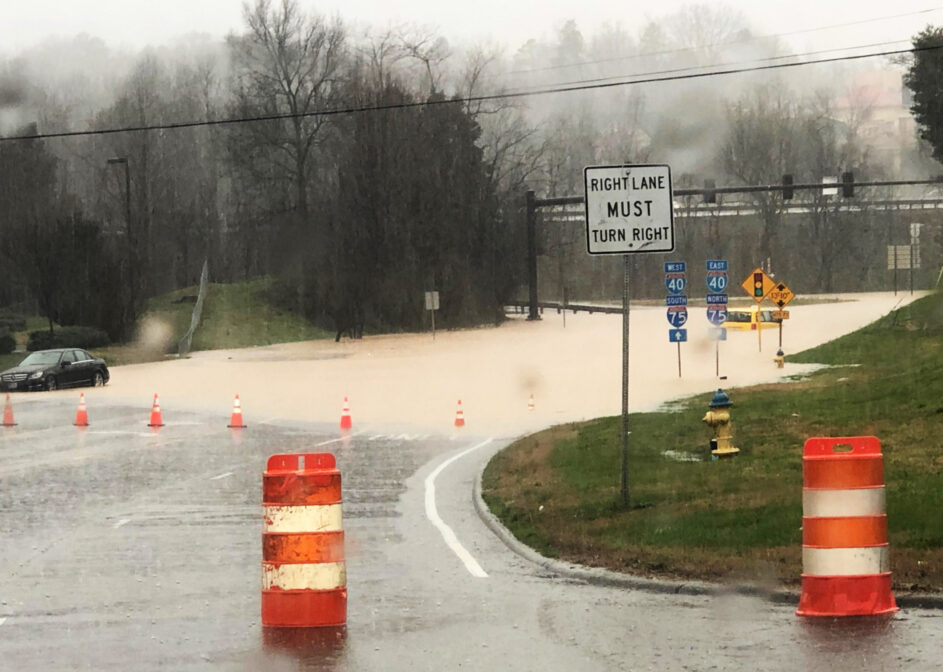At the beginning of 2019, the issue of stormwater management wasn’t keeping most of us up at night. Sure, it was part of Farragut’s infrastructure and would soon need upgrades due to the age of the town, but it didn’t seem like a huge priority. Out of sight, out of mind – right?
Then came the flood of Feb. 23. Water was in places we’d never even imagined, and it became obvious that managing our aging stormwater structures was vital. In case we didn’t get the message the first time, we had a repeat lesson on Feb. 6, 2020.
After the 2019 event, three roads had to be repaired due to pipe failures: Maple Tree Drive, Red Mill Road and Campbell Station Road at the I/40-75 interchange. The cost of these repairs was approximately $323,000, as well as a lot frustration for drivers. This, it turns out, is why upgrading stormwater infrastructure is so important.
The good news is that Farragut has begun a pilot program to address its aging stormwater infrastructure, which is what we call the pipes, culverts and catch basins that carry water away from roads. The two-part program began last year when the town contracted with a civil engineering firm to inspect, via camera, 17 pipes that were suspected of deterioration, as well as all of Fox Run subdivision. The inspection covered approximately five percent of the town, says Assistant Town Engineer Brannon Tupper.
Inspected pipes were given a rating of red, yellow or green. Based on the ratings and recommendations from the Public Works Department, 13 of the most critical pipes will be repaired as part of the pilot program. The cost to repair all 13 pipes is $723,600.
“It’s better to be proactive, to repair now, rather than wait for a failure,” says Tupper.
The repairs will be made using an innovative technology called Cured-in-Place Pipe Lining (CIPP). During CIPP, a resin-soaked membrane is used to line the inside of pipes and then filled with hot air or steam, which cures the resin, creating what is essentially a new pipe inside the old pipe.
“It’s a cost-effective, less invasive way to extend the life of our pipes,” says Tupper.
Homeowners will be notified when repairs are being made in their neighborhoods, but roadways will be minimally impacted. Residents may notice a harmless odor when nearby pipes are being lined.
In 2017, Vice Mayor Louise Povlin attended a Tennessee Municipal League meeting where she learned about a municipality that was forced to surrender its charter when it couldn’t afford critical stormwater repairs. Since then, she’s pushed for an assessment of Farragut’s system.
“I’m very relieved,” she says of the town’s pilot program. “You can see when a road has deteriorated, but with stormwater, it’s not something you can look at and say, ‘That needs work.’ Now, just like with our roads, we’ll have a watch system where we’ll go back and assess deteriorating pipes and say, ‘Is this one ready?’”
Povlin reports that the town recently received a $272,000 refund from FEMA for funds spent repairing collapsed pipes at Maple Tree Drive and Red Mill Road. Those funds will be folded into money the board has already set aside to assess the rest of Farragut’s stormwater system.
Town of Farragut marketing and public relations coordinator Wendy Smith is your reliable Farragut insider.

